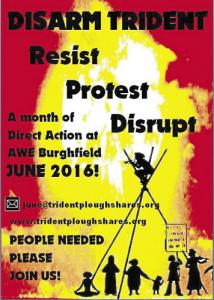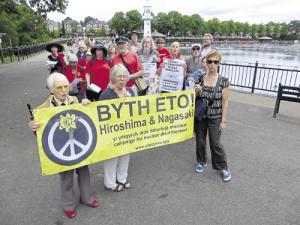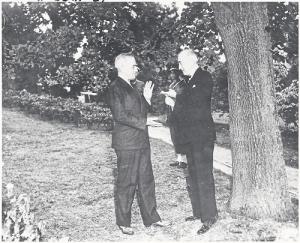Sister Megan Rice, a US Ploughshares activist, spoke on 8 January at the newly-opened Edinburgh Peace & Justice Centre about being imprisoned for two years for a symbolic act of resistance at the facility where the US is making new nuclear weapons and where the explosive components of the Hiroshima bomb were produced as part of the Manhattan Project.
Megan was 82 years of age at the time of…









